Introduction
Individuals with Asperger's Syndrome exhibit a range of symptoms and characteristics that impact their social interactions, communication, and behavior. This article will explore the challenges faced by individuals with Asperger's Syndrome in social interactions, communication difficulties they may encounter, the restrictions and obsessive behaviors related to their interests, sensory sensitivities, the decision to disclose an Asperger's diagnosis in the workplace, writing challenges, research on interventions for improving communication, and support and resources available for individuals with Asperger's and their families. By understanding these topics, parents can provide appropriate support and intervention strategies to empower their children and ensure their well-being.
Symptoms and Characteristics
Individuals with Asperger's Syndrome exhibit a range of symptoms and characteristics that impact their social interactions, communication, and behavior. One of the primary indicators of Asperger's Syndrome is a significant difficulty in socializing and forming meaningful relationships.
This can manifest as a lack of understanding of social cues, difficulty interpreting nonverbal communication, and a tendency to engage in repetitive or stereotypical behaviors. Additionally, individuals with Asperger's Syndrome may have intense and narrow interests, often focusing on specific topics or activities to the exclusion of others. It is important to understand these symptoms and characteristics to provide appropriate support and intervention strategies.
Challenges in Social Interactions
Social interactions can be particularly challenging for individuals with Asperger's Syndrome. They may struggle with understanding social rules and norms, making it difficult for them to navigate social situations effectively.
These challenges can lead to feelings of isolation, anxiety, and low self-esteem. Empowering Parent Advocate: It is crucial for parents and caregivers to provide support and guidance in developing social skills and helping their child navigate social situations. By teaching and practicing social skills in a structured and supportive environment, individuals with Asperger's Syndrome can gradually improve their ability to interact with others.
Communication Difficulties
Communication difficulties are common among individuals with Asperger's Syndrome. They may have challenges with both verbal and nonverbal communication.
Some individuals may struggle with understanding and using appropriate gestures, facial expressions, and tone of voice. Others may have difficulty initiating and maintaining conversations. Empowering Parent Advocate: It is essential for parents to understand these communication difficulties and employ strategies such as visual supports, social stories, and explicit instruction to help their child develop effective communication skills.
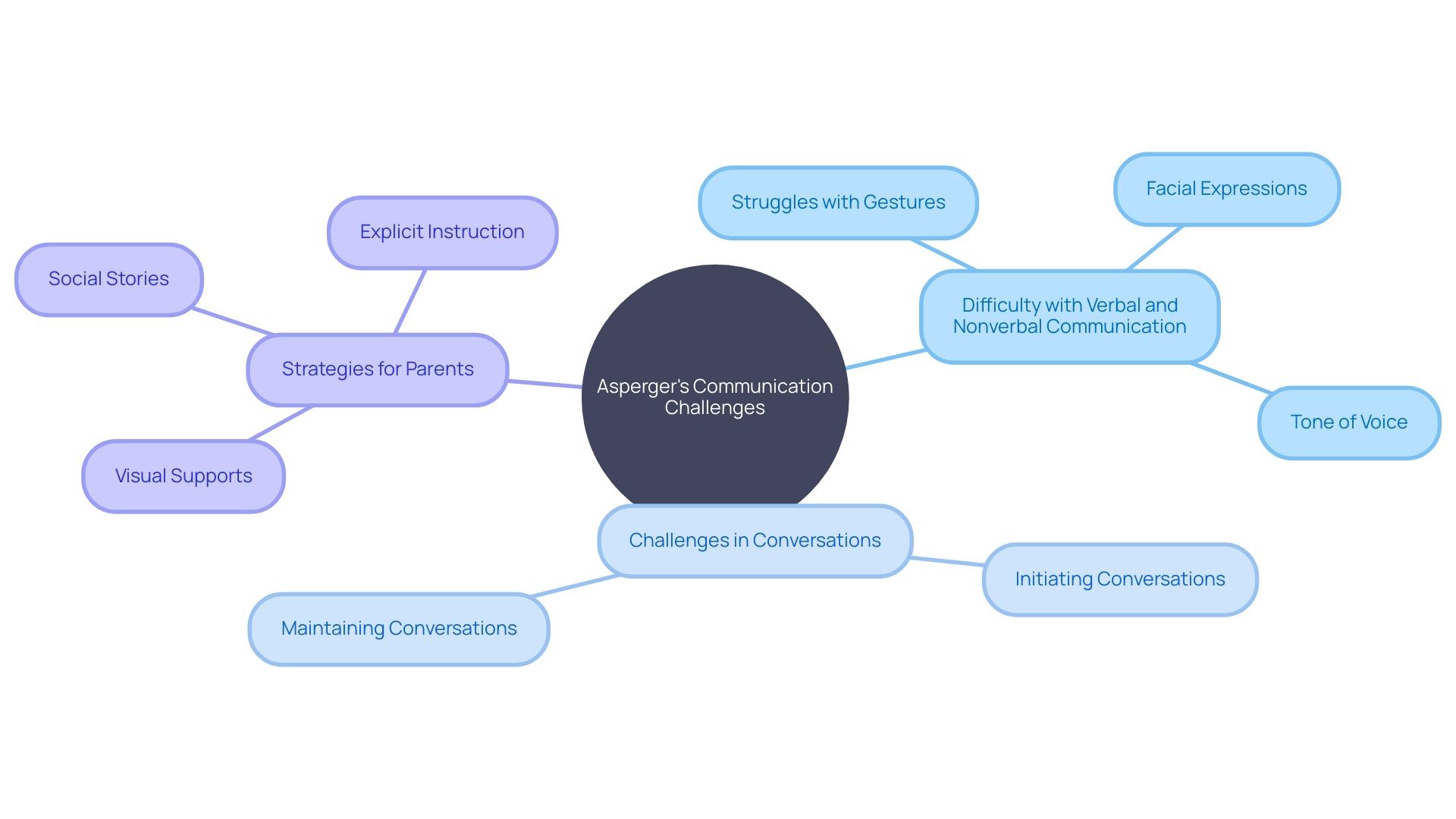
Restricted Interests and Obsessive Behaviors
Asperger's Syndrome is characterized by an individual's deep and sometimes consuming interest in certain subjects, often leading to an extensive knowledge in these areas. This focus can become a major part of their lives and might overshadow other pursuits or social interactions. While these passionate interests can provide a sense of security and personal achievement, they could also pose challenges in adapting to new situations or in diversifying their activities.
It is essential for parents to recognize the value these interests hold for their child, fostering them as strengths. Simultaneously, it's beneficial to encourage a gradual exploration of varied interests, which can enhance their child's adaptability and social experiences. Through this balanced approach, parents can aid in the child's overall development and ensure that their child with Asperger's Syndrome can navigate through life's diverse landscapes with confidence.
Sensory Sensitivity and Overstimulation
Many individuals with Asperger's Syndrome have sensory sensitivities and may experience overstimulation in certain environments. They may be overly sensitive to sounds, lights, textures, or smells, which can lead to discomfort and distress.
As a result, they may seek to avoid or escape from overwhelming sensory situations. Empowering Parent Advocate: Parents can help their child manage sensory sensitivities by creating a sensory-friendly environment, providing sensory breaks when needed, and teaching self-regulation strategies.
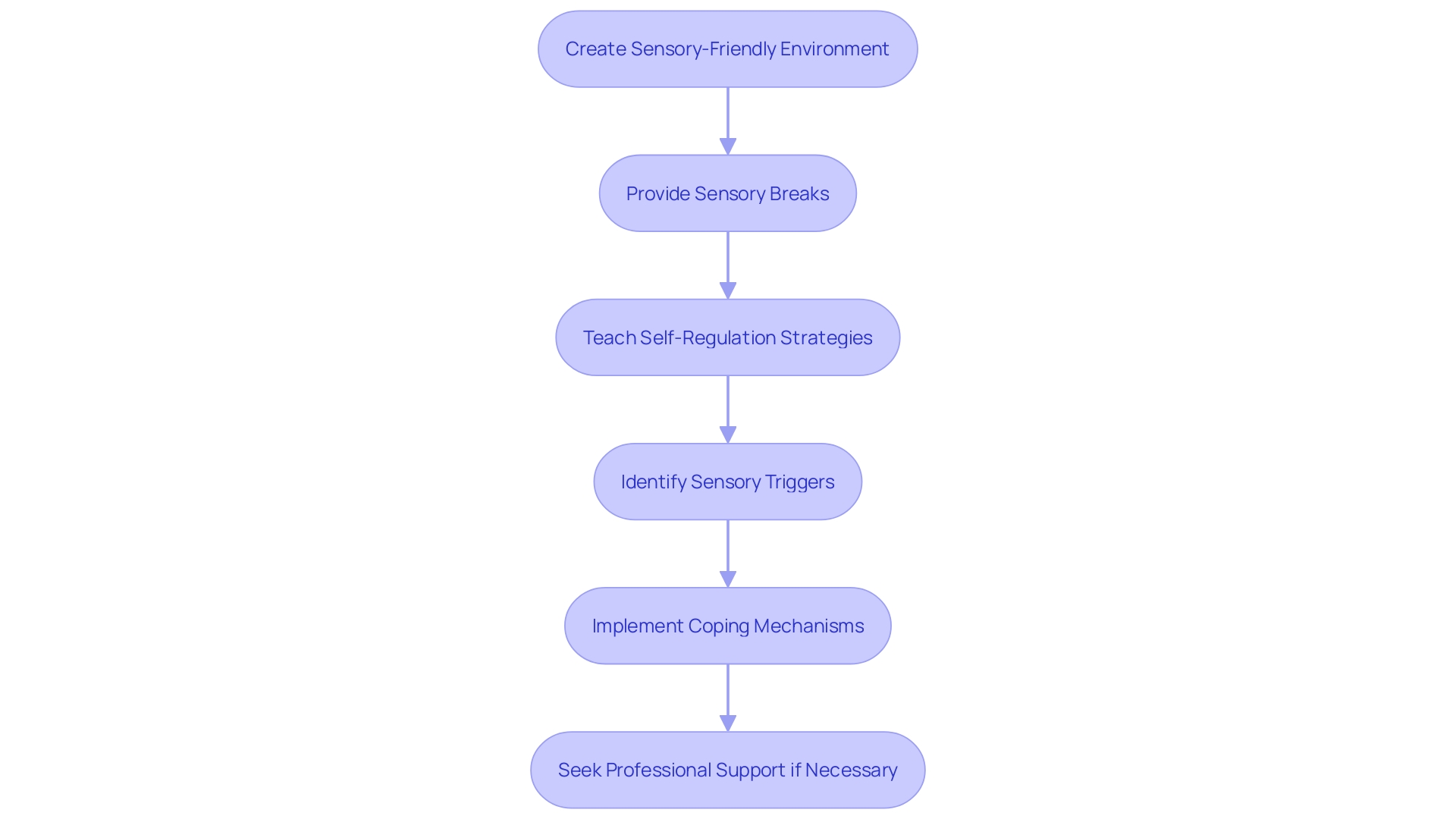
Disclosure and Employment: To Share or Not to Share
When faced with the decision to disclose an Asperger's diagnosis in the workplace, the implications are considerable. On one hand, there are benefits like receiving accommodations and fostering understanding among colleagues, which aligns with the aspirations of many.
Autistica's research indicates that the majority of autistic individuals in the working-age population, amounting to 680,000 in the UK, express a desire to work. Yet, data reflects a stark reality: only 3 in 10 autistic adults are employed, compared to 8 in 10 non-disabled individuals.
Autistic employees not only face this lower employment rate but also endure a significant pay disparity, earning a third less on average compared to their non-disabled counterparts. As we venture into strategies that can positively impact the experience of autistic individuals in the workplace, recent reviews have concentrated on effective recruitment, retention, and development practices.
Through collaboration between employers, organizations, and support groups, the goal is to forge an environment that recognizes the potential productivity of autistic employees and actively reduces stigma. The exchange between a parent and their child is crucial during this contemplative stage. Open discussions around self-advocacy and choosing an empathetic workplace are central to navigating the pros and cons of disclosure. By doing so, parents can play an essential role in equipping their child with the tools necessary to advocate for their own needs and to contribute meaningfully in a professional setting. Sensitive approach to this conundrum respects the complexities autistic individuals face, striving not only to secure employment but to reshape the landscape of inclusion and equality in the workforce.
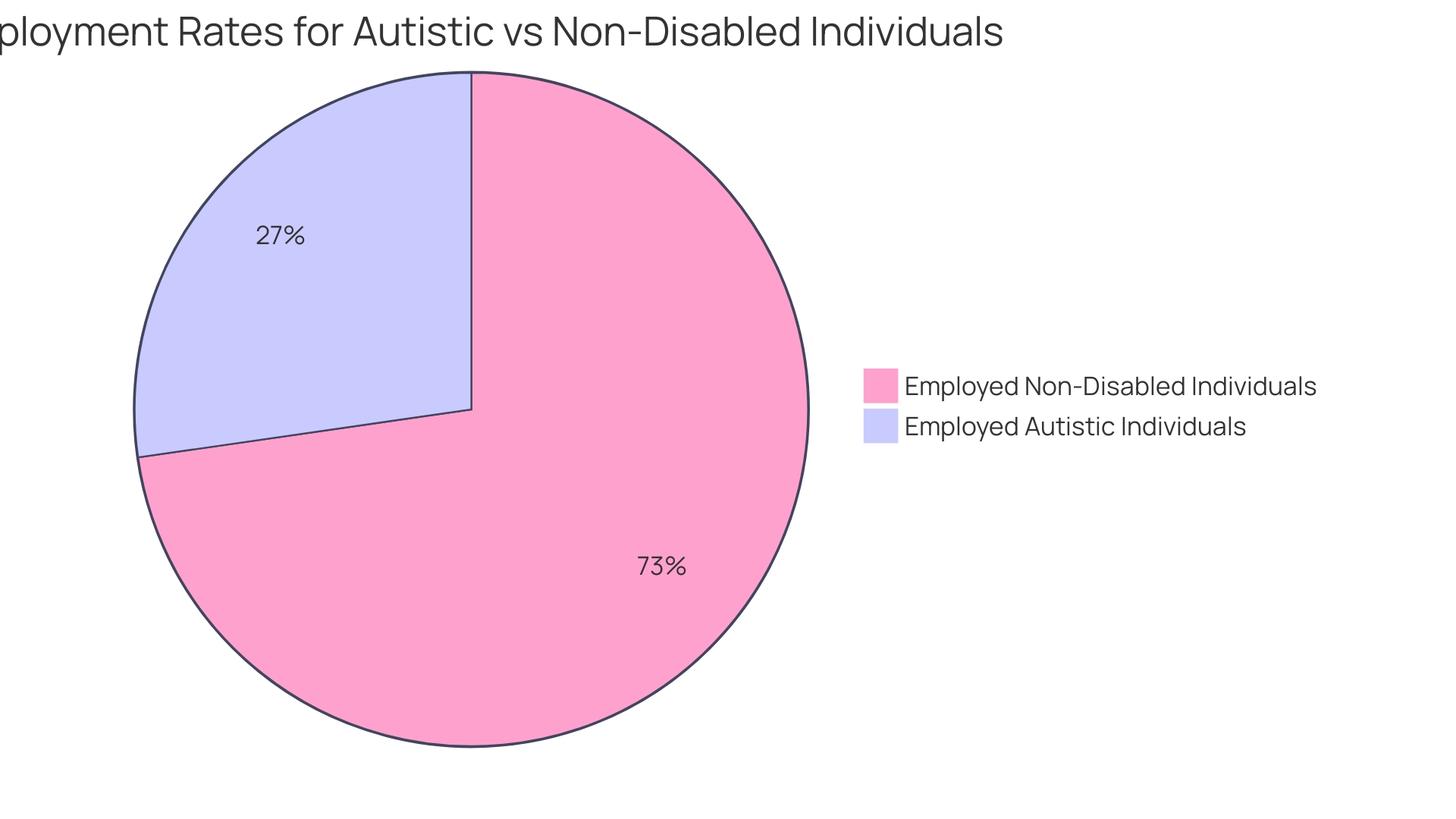
Writing Challenges and Strategies for Individuals with Asperger's
Children with Asperger's Syndrome often grapple with writing-related tasks which are critical for their academic success and effective communication. Studying the nuances of their writing challenges is essential. Research by Critten et al.
sheds light on this by comparing the writing processes of children with Development Language Disorder (DLD) to those of neurotypical children. Using the Eye and Pen, a device that tracks writing metrics, they focused on the children's ability to manage spelling tasks, especially the morphological aspects. A key insight was the analysis of pauses at the juncture of root words and suffixes, an approach in line with the broader research on language development.
By understanding these subtleties, parents can adopt a more tailored approach to assisting their children with Asperger's Syndrome. Breaking tasks into smaller, more manageable components, utilizing visual aids like graphic organizers, and embracing assistive technologies are all strategies that can considerably ease the writing process. Moreover, consistent and positive feedback nurtures their expressive capabilities, ultimately enhancing their organizational skills and promoting coherence in their writing.
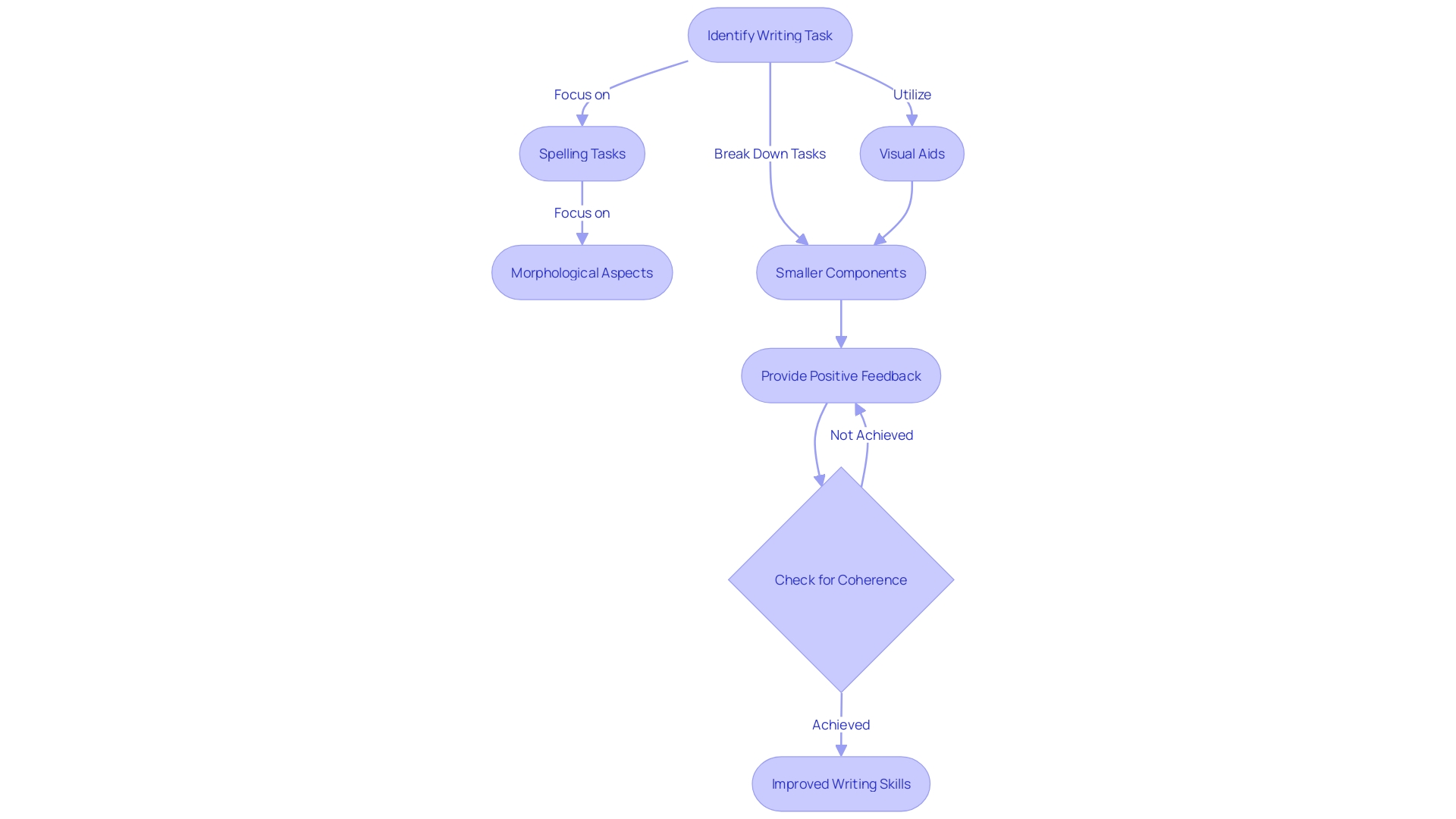
Research and Interventions for Improving Communication
As we continue to seek effective communication strategies for individuals with Asperger's Syndrome, it's paramount to look not only at the availability of interventions like social skills training and speech therapy but also at the quality of the research underpinning these methods. Studies scrutinizing nonpharmacological intervention research - those not involving medication - highlight a concern: many research designs are flawed, rendering it challenging to fully gauge their effectiveness, the breadth of their impact, or potential adverse effects. This reinforces the need for a discerning eye when considering which interventions might benefit children with Asperger's Syndrome.
Additionally, voices from within the autism community, inclusive of both researchers and non professionals, have played a pivotal role over recent decades in advocating for higher standards in intervention research. Their insights have raised awareness on issues of research integrity and the fundamental respect for individuals with autism. For parents striving to empower their children, understanding these complexities is crucial when seeking out the most supportive and beneficial communication interventions.
Support and Resources for Individuals with Asperger's and Their Families
There are various support networks and resources available to individuals with Asperger's Syndrome and their families. These include parent support groups, therapy services, educational resources, and online communities.
Empowering Parent Advocate: Parents can proactively seek out these support systems to connect with other families facing similar challenges, access valuable information and resources, and gain emotional support and guidance. Establishing a strong support network is crucial in navigating the journey of understanding and supporting individuals with Asperger's Syndrome.
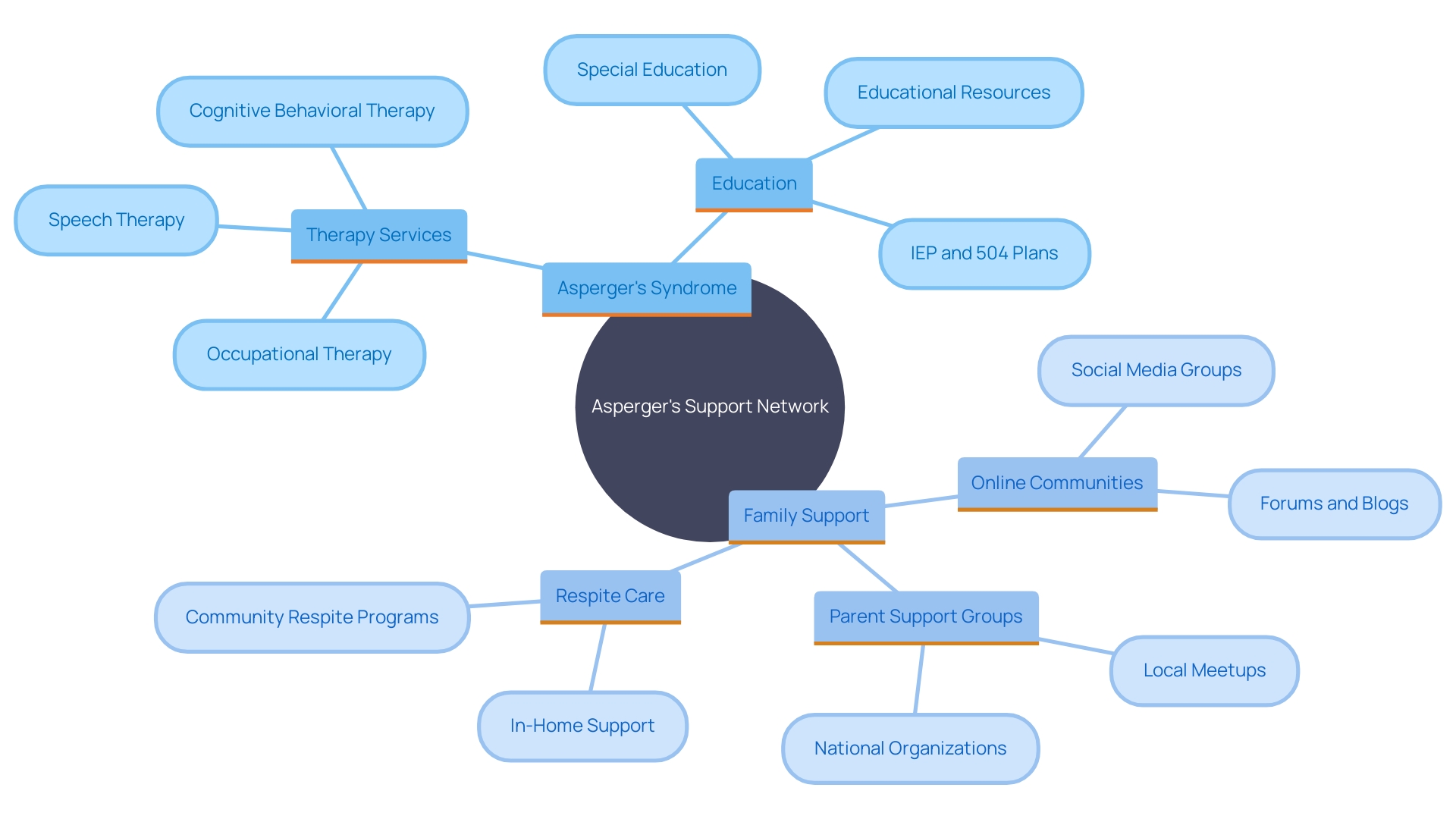
Conclusion
In conclusion, individuals with Asperger's Syndrome face challenges in social interactions, communication, and behavior. Parents can support their child by teaching social skills and employing communication strategies.
Creating sensory-friendly environments helps manage sensory sensitivities. When deciding to disclose an Asperger's diagnosis in the workplace, parents can guide their child in self-advocacy and choosing an inclusive environment.
Writing challenges can be addressed through tailored approaches and positive feedback. It is important for parents to consider the quality of research when seeking interventions. Support networks and resources are available to provide information and emotional support to individuals with Asperger's and their families. By understanding these topics and utilizing available resources, parents can empower their children with Asperger's and ensure their overall well-being.




